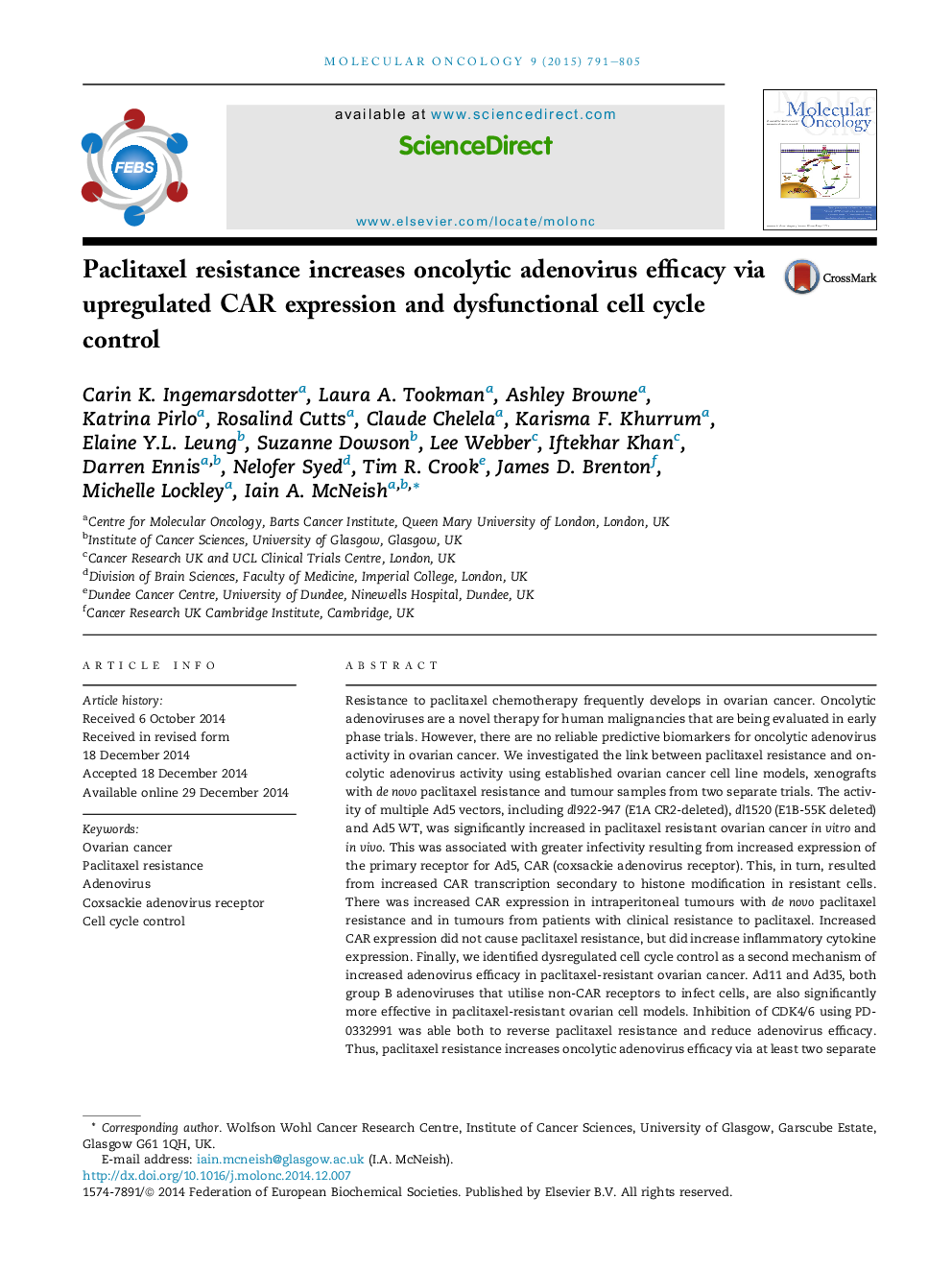| Article ID | Journal | Published Year | Pages | File Type |
|---|---|---|---|---|
| 2145551 | Molecular Oncology | 2015 | 15 Pages |
•Oncolytic adenoviruses are more effective in paclitaxel-resistant ovarian cancer, via multiple mechanisms.•Paclitaxel increases expression of coxsackie adenovirus receptor (CAR) through altered histone modification.•Increased CAR expression can increase inflammatory cytokine expression.•Paclitaxel resistance also increases adenovirus activity via dysregulated cell cycle control.
Resistance to paclitaxel chemotherapy frequently develops in ovarian cancer. Oncolytic adenoviruses are a novel therapy for human malignancies that are being evaluated in early phase trials. However, there are no reliable predictive biomarkers for oncolytic adenovirus activity in ovarian cancer. We investigated the link between paclitaxel resistance and oncolytic adenovirus activity using established ovarian cancer cell line models, xenografts with de novo paclitaxel resistance and tumour samples from two separate trials. The activity of multiple Ad5 vectors, including dl922-947 (E1A CR2-deleted), dl1520 (E1B-55K deleted) and Ad5 WT, was significantly increased in paclitaxel resistant ovarian cancer in vitro and in vivo. This was associated with greater infectivity resulting from increased expression of the primary receptor for Ad5, CAR (coxsackie adenovirus receptor). This, in turn, resulted from increased CAR transcription secondary to histone modification in resistant cells. There was increased CAR expression in intraperitoneal tumours with de novo paclitaxel resistance and in tumours from patients with clinical resistance to paclitaxel. Increased CAR expression did not cause paclitaxel resistance, but did increase inflammatory cytokine expression. Finally, we identified dysregulated cell cycle control as a second mechanism of increased adenovirus efficacy in paclitaxel-resistant ovarian cancer. Ad11 and Ad35, both group B adenoviruses that utilise non-CAR receptors to infect cells, are also significantly more effective in paclitaxel-resistant ovarian cell models. Inhibition of CDK4/6 using PD-0332991 was able both to reverse paclitaxel resistance and reduce adenovirus efficacy. Thus, paclitaxel resistance increases oncolytic adenovirus efficacy via at least two separate mechanisms – if validated further, this information could have future clinical utility to aid patient selection for clinical trials.
